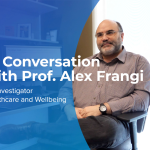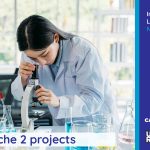Rubbish! Solving the biowaste problem

Since the 1950s, it’s estimated that 9 billion tonnes of plastic have been manufactured. Of that output, only around 9% has ever been recycled. And the problem is growing. Dr Alejandro Sanchez Monsalve from the University of Bath is striving to understand and reverse the plastic production line.
Alejandro, as an expert in material sustainability at the Institute for Sustainability (IfS) in Bath, has made it his mission to reduce carbon emissions by replacing current practices of biowaste disposal with innovative, lower carbon technologies.
“Whilst the world has been moving towards a circular economy by minimising single use plastic production,” Alejandro said. “The cell and gene therapy industry has moved in the opposite direction favouring its use. The plastics used in manufacturing, research and clinical trials become bioprocess waste which is treated as biohazardous material.”
Dr Alejandro Sanchez’s expertise in technologies to recycle plastics chemically could provide a solution to his problem, by processing biowaste into virgin plastic which would lower the carbon footprint of the healthcare industry.
Working alongside experts at the Cell and Gene Therapy Catapult, Dr Sanchez aims to explore the potential of these chemical technologies in a Researcher in Residence scheme, funded by the EPSRC’s Innovation Launchpad Network+.
Matthew Durdy, Chief Executive of the Cell and Gene Therapy Catapult, says: “This project offers a valuable opportunity to explore more sustainable approaches to managing plastic waste. By working with a leading materials sustainability expert, we hope to better understand the volume of waste that is produced by the advanced therapies industry and identify if any existing technologies could be adapted to recycle this waste.”



